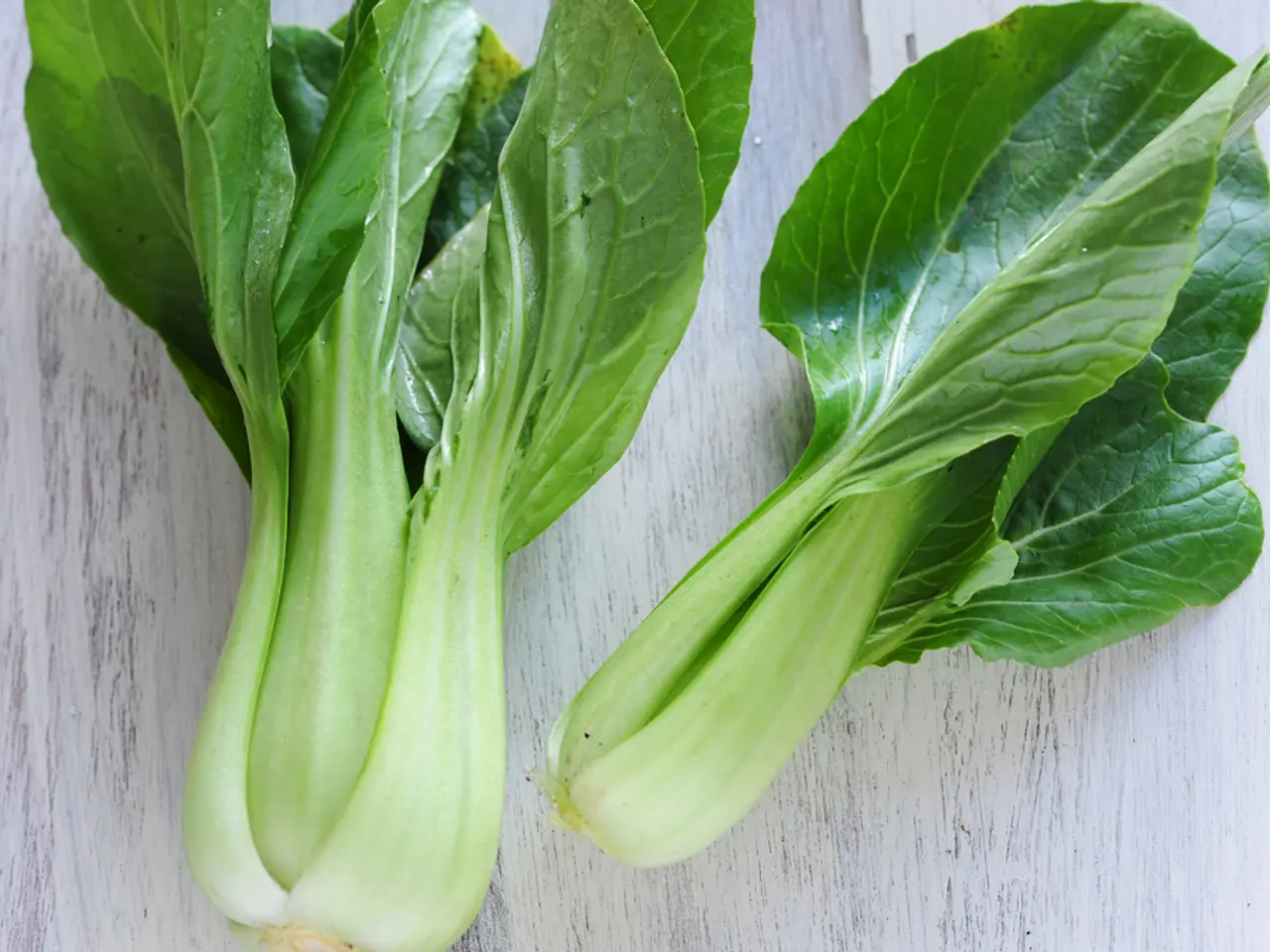Stabilizing Insulin and Blood Sugar Levels: Foods to Maintain Balance
For individuals living with diabetes, maintaining a balanced diet is crucial for effective management of insulin and blood sugar levels. Here are some dietary recommendations that can help achieve this balance.
Firstly, high protein foods play a significant role in managing blood sugar levels and promoting feelings of fullness. Examples of these foods include fish such as salmon, mackerel, and tuna, skinless poultry like chicken and turkey, beans such as lima, kidney, and black beans, lentils, nuts, seeds, soybeans, tofu, and low-fat dairy products like low-fat Greek yogurt.
Whole grains are another essential component of a diabetes-friendly diet. They are a more nutritious alternative to highly processed or refined grains. The U.S. Department of Agriculture (USDA) recommends that people fill one-quarter of their plate with grains, and the American Diabetes Association (ADA) suggests that at least half of a person's daily grain intake should come from whole grains. Examples of whole grain foods include whole grain crackers, brown rice, whole wheat pasta, whole grain cereals, quinoa, whole oats or oatmeal, whole grain breads, pitas, and tortillas.
Eating more unsaturated fats and fewer saturated fats can help reduce the risk of cardiovascular diseases. Healthy fats may be monounsaturated or polyunsaturated. Examples of foods rich in unsaturated fats are avocados, olive oil, nuts, and seeds. Dark chocolate, which contains more cacao than milk chocolate, may help regulate blood sugar levels due to the flavonoids it contains, but it should be consumed in moderation as it still contains sugar.
The ADA recommends eating at least 3-5 servings of vegetables each day, and non-starchy vegetables are an excellent addition to these diets. Examples of non-starchy vegetables include carrots, bean sprouts, broccoli, cauliflower, cucumber, cabbage, salad greens such as arugula, spinach, and lettuce.
In addition to these food groups, it's important to limit or eat only in moderation certain foods that can cause a spike in blood sugar levels. These include sugary drinks, highly processed foods, white rice, bread, pasta, breakfast cereals with added sugar, yogurts with added sugar, honey, maple syrup, flavored, sugary coffee drinks, and fried foods.
Effective diabetes management can also reduce the risk of complications such as cardiovascular disease, nerve damage, vision loss and blindness, slow wound healing, and recurrent infections. Maintaining stable insulin and blood sugar levels can lead to improved mood, reduced fatigue, and improved brain and blood vessel health.
Lastly, blood glucose tracking is essential for managing diabetes. This can be done using portable devices called blood glucose monitors, which give a snapshot of blood sugar levels after a small prick on the finger, or continuous glucose monitors, which constantly monitor blood sugar levels throughout the day.
In conclusion, a balanced diet filled with whole grains, vegetables, legumes, lean protein, nuts, and seeds can help a person better manage their blood sugar and insulin levels, ultimately improving their overall health and reducing the risk of diabetes-related complications.
- Multiple high protein foods, such as fish, poultry, beans, lentils, nuts, seeds, soybeans, tofu, and low-fat dairy products, assist in managing blood sugar levels and promote feelings of fullness.
- Consuming whole grains, like whole grain crackers, brown rice, whole wheat pasta, cereals, quinoa, oats, breads, pitas, and tortillas, is essential for a diabetes-friendly diet.
- Unsaturated fats, found in foods like avocados, olive oil, nuts, and seeds, help lower the risk of cardiovascular diseases.
- The ADA advises eating at least 3-5 servings of vegetables daily, with non-starchy options like carrots, bean sprouts, broccoli, cauliflower, cucumber, cabbage, and salad greens being excellent additions.
- Sugary drinks, highly processed foods, white rice, pasta, certain cereals, yogurts, honey, maple syrup, flavored coffee drinks, and fried foods should be consumed in moderation due to their potential to cause a spike in blood sugar levels.
- Effective diabetes management reduces the risk of complications like cardiovascular disease, nerve damage, vision loss, slow wound healing, and recurrent infections.
- Maintaining stable insulin and blood sugar levels can lead to improved mood, reduced fatigue, and better brain and blood vessel health.
- Blood glucose tracking, using devices such as blood glucose monitors or continuous glucose monitors, is crucial for managing diabetes.
- Adopting a balanced diet oriented around whole grains, vegetables, legumes, lean protein, nuts, and seeds can improve a person's overall health and reduce the risk of diabetes-related complications.
- In the science of health-and-wellness, establishing a diabetes-friendly diet comprising suitable food choices helps manage blood sugar and insulin levels.
- For a healthy persona, focusing on food and food benefits from multiple sources, such as whole grains, vegetables, legumes, lean protein, nuts, and seeds, is beneficial for diabetes management.
- Fitness-and-exercise in combination with a balanced diet can further enhance the positive impact on insulin and blood sugar control, in addition to promoting overall health and reducing the risk of multiple conditions like diabetes, obesity, depression, bipolar, diabetes, hyperglycemia, psoriatic arthritis, COPD, sclerosis, and other health-related issues.




